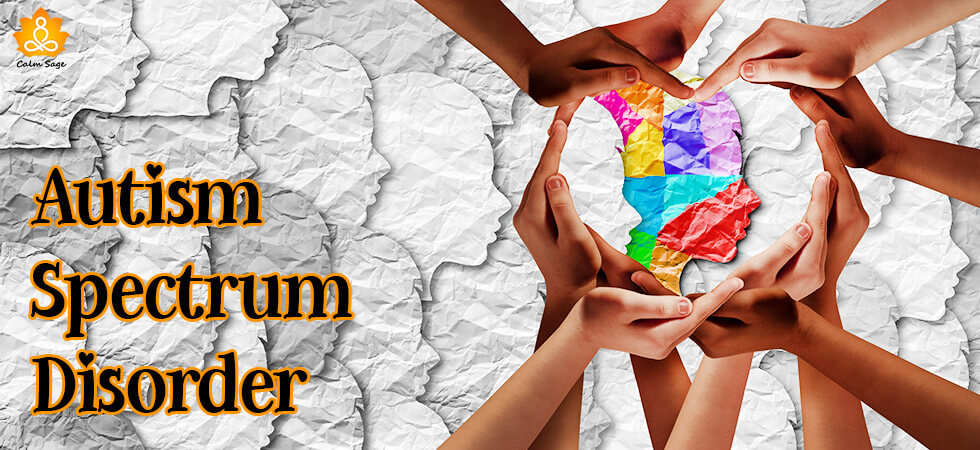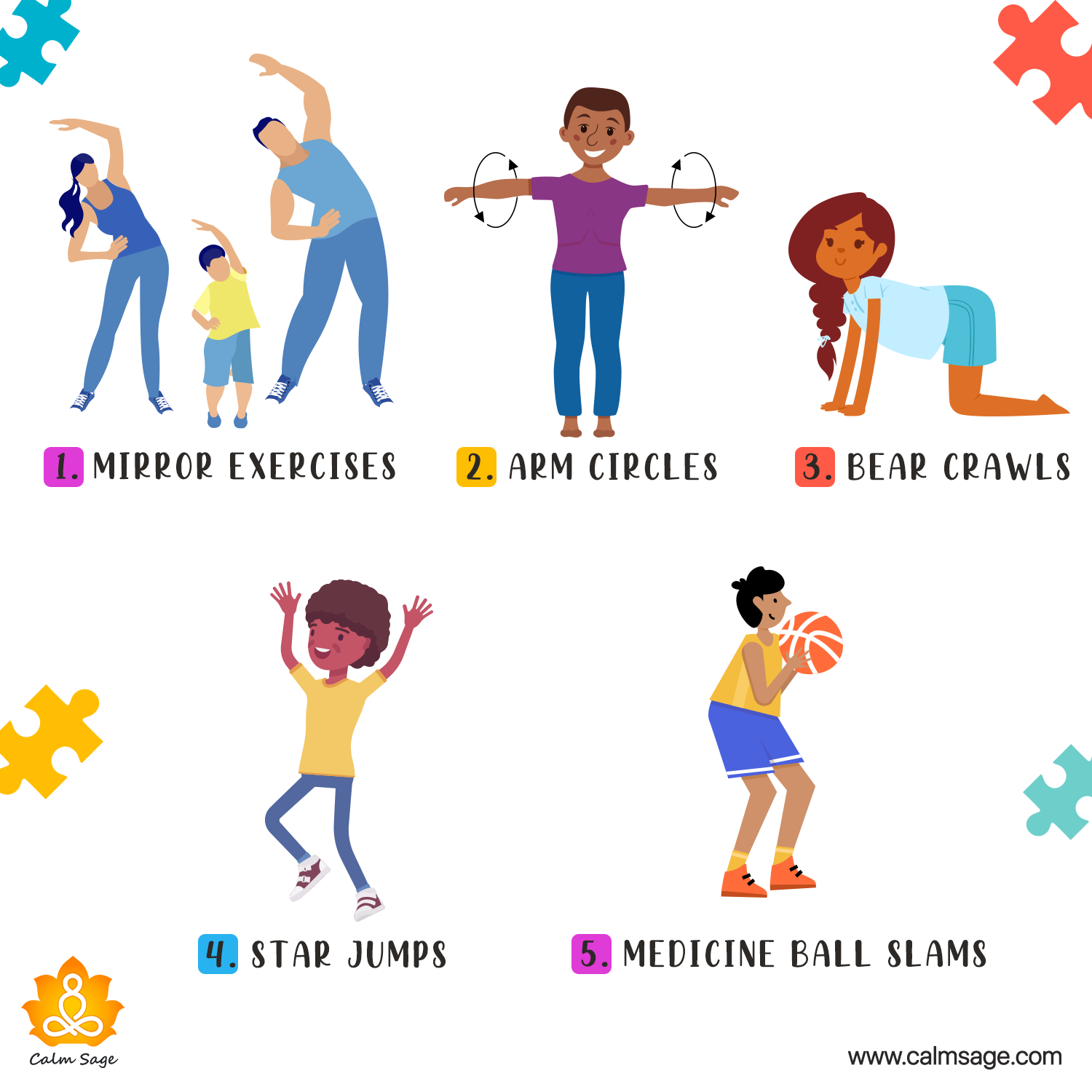Autism Spectrum Disorder (ASD): Symptoms, Causes, Treatment and More

Autism is a bio-neurological developmental disability that generally appears before the age of 3. It is a broad term used to describe a group of neurodevelopmental disorders. While 1 in 59 children are diagnosed with it there are many misconceptions and unknown facts about autism that keep the picture of autism unclear.
Related: 10 Incredibly Famous People With Autism Are An Inspiration For All
Autism Spectrum Disorder: Complete Guide
Let us learn more about Autism in detail.
What is Autism?
Autism spectrum disorder (ASD) is a broad term that is used to describe a group of neurodevelopmental disorders. People with autism have challenges with communication and social skills.
It is usually diagnosed in childhood and boys are at four times higher risk of diagnosis than girls. Autism is a lifelong condition. Usually, children with autism go on to live independent, productive, and fulfilling lives.
Quick fact: The reason why it is referred to as a spectrum is that it ranges from mild to severe depending on the challenges that affect their everyday life and the amount of support needed by them.
What are Different Types of Autism?
As discussed above Autism Spectrum Disorder is an umbrella term that includes a range of neurodevelopmental features. According to the most recent edition of DSM, that is, DSM-5 there are five different specifiers or subtypes of DSM-5.
This includes the following:
- With or without accompanying intellectual impairment.
- With or without accompanying language impairment.
- Associated with a known medical or genetic condition or environmental factor.
- Associated with another neurodevelopmental, mental, or behavioral disorder.
- With catatonia.
Someone can be diagnosed with one or more specifiers.
Signs of Autism:
Each person with autism is different and will exhibit a different combination of signs and symptoms of autism. The signs of autism usually appear by the age of 2 or 3.
Some of the biggest common signs of autism are discussed below:
- Communication issues. A child may not respond to their name.
- The child prefers to be alone.
- They avoid eye contact or will display limited eye contact.
- Atypical speech patterns and tone of voice.
- Difficulty maintaining or responding to conversation.
- They are likely to have limited responses to social interaction.
- The child shows repetitive speech and behavioral patterns.
- They display difficulty in understanding other people’s feelings and even expressing theirs.
- Avoids being cuddled up.
- Does not like playing with others.
- Facing difficulty in starting a conversation or interacting with others.
Showing repetitive behavior has been a major sign of autism among kids. The repetitiveness may display in the following manner:
- A preoccupation with a certain toy or household item.
- Repetitive movements, such as swinging back and forth.
- Lining up or arranging toys or objects in an orderly fashion.
- Super focused on a specific topic like dinosaurs or leaves.
- Wanting to have a fixed routine each day (disturbance in which is overwhelming for them).
Also Read: Yoga For Kids! Calming Yoga Poses For Kids and Their Benefits
What Causes Autism
Just like various other mental health conditions the exact cause of ASD is still unknown. However, some factors are associated with autism and are likely to put an individual at risk of the same.
This includes:
- A close family member with autism.
- Genetic mutation and other genetic disorders.
- Fragile X syndrome.
- Metabolic imbalances.
- Having older parents.
- A history of viral infections.
- Being a male (ASD affects males nearly four times more than females).
- Fetal exposure to harmful products like Thalidomide and Valproic Acid.
You can figure out from this list that Autism is an outcome of both nature and nurture factors (even the National Institute of Neurological Disorders and Stroke supports this nation). There have been various controversial studies as well that have found a link with autism and other factors but none of them have provided enough validation yet.
How is Autism Diagnosed
Many studies have found that early diagnosis can make a huge difference in the life of a child. Autism can be diagnosed by using different screenings, genetic tests, and evaluations. We are going to discuss them one by one.
The American Academy of Pediatrics (AAP) recommends that all children must be screened for ASD at the ages of 18 and 24 months.
[ Related: Cognitive Behaviour Therapy (CBT) For Kids | What Makes It The Right Therapy For Your Child ]
Tools for Diagnosis of ASD:
- Modified Checklist for Autism in Toddlers (M-CHAT). It makes use of a 23-question survey that is filled out by parents.
- Autism Diagnostic Observation Schedule (ADOS). This developmental questionnaire is a standardized assessment in children.
- DNA testing for genetic diseases.
- Certain behavior evaluations.
- Occupational therapy screening.
- Visual and audio tests to rule out any issues with vision and hearing that are not related to autism.
Other than these diagnostic tools there might be some other milestones as well that your doctor will check for. Your honest responses will further aid in the child’s screening.
Quick Fact: April is marked as World Autism Month.
How is Autism Treated?

Autism is a lifelong condition that does not have a complete cure as of now. However, early diagnosis and different forms of therapies have been found to make the life of people with autism easier.
The most preferred treatment approaches for kids with autism are:
- Behavioral therapy.
- Speech therapy.
- Play therapy.
- Occupational therapy.
- Physical therapy.
- Meditation techniques.
Each child will respond differently to different treatment approaches. Make sure you consult with a mental health professional that will work best for your child.
Frequently Asked Question about Autism:
1. What was the diagnosis of ASD before DSM-5?
Prior to the DSM-5, people on the autism spectrum were diagnosed with one of the following disorders:
- Autistic disorder
- Asperger’s syndrome
- Pervasive development disorder-not otherwise specified (PDD-NOS)
- Childhood disintegrative disorder
2. What is High vs. Low Functioning Autism?
Before DSM-5 people with autism were classified in two categories based on their level of functioning as high or low functioning autism. However, as this classification failed to provide a complete picture of the challenges and assets of an individual with autism it has now been replaced with 3 levels of autism. To know more about high functioning autism vs. low functioning autism click here. (link of the second blog).
3. How can I as a parent support my child with Autism?
It all starts by understanding how Autism is impacting your child’s life. Depending on that look for ways and ideas that will not trigger their signs of autism-like avoid disturbing their routine, work on their strengths, and more. Above all keep asking yourself and evaluate these 4 questions:
- What triggers a reaction in my child?
- What are their strengths and weaknesses?
- What is the best way to communicate with them?
- What do they enjoy and dislike?
We understand it can be challenging for you, so make sure that you practice self-care to protect your mental wellness and aid that of your child.
Author’s Note:
Autism is definitely a challenging mental health condition but with early diagnosis, its signs and symptoms can be managed. Being aware of the same not only makes us develop empathy for someone struggling with ASD but also allows us to help them with our best knowledge. Remember it is a rather complex condition and you need to keep patience with ones who are struggling with autism.
Do you know someone who is living with autism, someone who inspires you? Share their story and inspire millions of others with us by sharing their journey on our Write A Story page.





















This is really helpful and good explanation you are present.